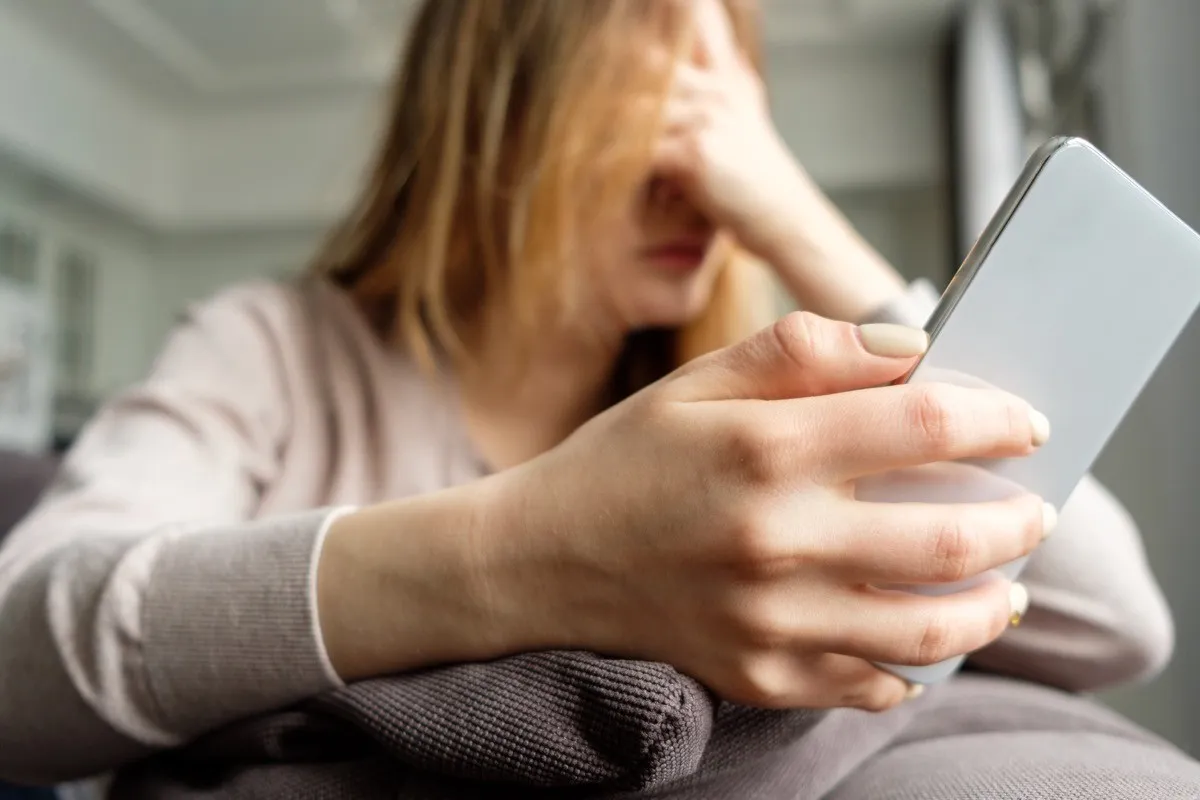10 Dangerous Signs You’re Drinking Too Much Alcohol, According to Doctors

Former U.S. Surgeon General Vivek Murthy, MD, recently made waves when he issued a damning advisory naming alcohol a leading preventable cause of cancer. His warning called on Congress to update labels on alcoholic products to reflect the dangers of consuming any amount of alcohol while simultaneously calling on the public to cut back on their personal intake.
Though many Americans now appear to be grappling with their own relationships to alcohol in light of this news, experts say that it can often be difficult to gauge the safety of your own drinking habits.
“Alcohol addiction doesn’t happen overnight,” says Joseph Volpicelli, MD, PhD, executive director of the Institute of Addiction Medicine. “It develops gradually, and by the time an individual recognizes the problem, they may already have a moderate or severe alcohol use disorder (AUD) and physical alcohol dependence.”
However, quickly identifying the red flags of overconsumption—which can be both behavioral and physical—can make an intervention more effective. Volpicelli adds that the more we normalize discussions around alcohol dependence and reduce the stigma of problematic drinking, the more likely people will be to seek support sooner.
Wondering if your own drinking habits are crossing a line? Read on to learn 10 dangerous signs that you’re drinking too much alcohol, according to experts.
RELATED: 7 Signs You’re Allergic to Alcohol.
1
You use alcohol to cope.

Whether you’re drinking “too much” can be measured in fluid ounces, but it can also be interpreted more broadly by looking at when and why you drink. If you often use alcohol to cope with unfavorable emotions, that probably means you’re drinking too much.
“Drinking to relieve stress, anxiety, or emotional distress rather than for social enjoyment,” is a sign of alcohol use disorder, Volpicelli says. “After a period of heavy drinking, people often feel more anxious or irritable (sometimes called ‘hangxiety’). Drinking temporarily reduces these symptoms but ultimately leads to another cycle of anxiety as the alcohol wears off.”
2
Your tolerance is increasing.

Another sign that you’re drinking too much alcohol is that you notice having an increased tolerance. If you used to feel buzzed after one or two drinks but now need three or four “to achieve the same effect,” Volpicelli says it could be a clear sign that your body has adapted to a high volume of alcohol.
3
You’ve experienced withdrawal symptoms.

When you do hit pause on drinking, it’s a good idea to pay attention to how your body reacts. “Experiencing shakiness, sweating, nausea, headaches, and irritability when not drinking” are all withdrawal signs, suggestive of potentially dangerous overuse, Vopicelli cautions.
RELATED: Drinking Less Alcohol on Ozempic? New Study Helps Explain Why.
4
Your liver or heart health is suffering.

Some people only become aware that their alcohol use has exceeded safe levels after it has already begun to impact their health. Volpicelli says that your liver and heart health may be among the first to give way to the effects of too much alcohol.
“Prolonged alcohol use can lead to liver damage, high blood pressure, and an increased risk of heart disease,” he notes.
According to the National Institute on Alcohol Abuse and Alcoholism (NIAAA), drinking “too much on a single occasion can damage the heart,” causing problems that can include cardiomyopathy, heart arrhythmia, stroke and acute hypertension. Liver problems arising from heavy drinking over time can include fatty liver, alcoholic hepatitis, fibrosis, cirrhosis, and more.
5
Your gut health is suffering.

Alcohol can impact the gut microbiome—a complex ecosystem of bacteria that lives in the digestive tract and shapes our greater health.
As recently reported by The New York Times, drinking too much may lead to a whole host of gut health symptoms, including acid reflux, inflammation and bleeding, gas and bloating, abnormal bowel habits, leaky gut, and more.
For example, after following a group of 48,000 men over 26 years, researchers found that those who consumed one to two liquor-based (as opposed to beer or wine) drinks a day had a 67 percent higher chance of developing serious gastrointestinal bleeding.
6
You have trouble falling asleep or staying asleep.

Even if you feel well during your waking hours, your sleep patterns could also offer a clue that you’re drinking too much alcohol. Volpicelli notes that since alcohol dependence is often linked with chronic sleep disturbances, “suffering from insomnia, restless sleep, or waking up feeling unrefreshed” are all signs that your drinking could be getting out of hand.
RELATED: 10 Dangerous Signs You’re Not Drinking Enough Water, According to Doctors.
7
You’ve noticed changes in mood or cognition.

Alcohol doesn’t just affect your mood and cognition while you’re intoxicated; it can also have long-lasting effects on the brain—even in relatively moderate amounts.
“Alcohol interferes with the brain’s communication pathways, and can affect the way the brain looks and works,” says the NIAAA. “These disruptions can change mood and behavior, and make it harder to think clearly and move with coordination,” they say.
8
You experience frequent hangovers.

A hangover may seem like a foregone conclusion after spending a night out. Yet just because we’ve normalized this particular group of symptoms—think fatigue, weakness, nausea, headaches, muscle aches, stomach pain, vertigo, sensitivity to light and sound, anxiety, irritability, sweating, and increased blood pressure—doesn’t mean we should accept them.
“Regularly feeling fatigued, mentally foggy, or physically unwell after drinking” is a sign that you’re seriously overdoing it, Volpicelli says.
9
You do risky things while drinking.

Drinking too much can be dangerous in the sense that it can wreak havoc on your essential organs. However, those aren’t the only potential consequences of heavy drinking.
“Engaging in dangerous activities such as driving under the influence, getting into fights, or unsafe sexual behavior while intoxicated” are all signs that you’re drinking too much, Volpicelli says.
The doctor adds that many people struggling with AUD will also ignore the negative outcomes of their actions while intoxicated. “Continuing to drink despite health problems, relationship issues, or work-related consequences” are all suggestive of alcohol addiction, he points out.
RELATED: 5 Hosting Tips for Guests Who Don’t Drink, Etiquette Experts Say.
10
You feel out of control.

One of the clearest signs that you’re drinking too much alcohol is that you struggle to stop, indicating a lack of control over your actions.
“The defining characteristic of alcohol addiction is a vicious cycle where one drink fuels the need for the next, leading to impaired control,” says Volpicelli. “Unlike social drinkers who can stop after one or two drinks, individuals with alcohol use disorder (AUD) experience an overwhelming craving for more alcohol once they start drinking.”
“Instead of feeling satisfied, their brain’s reward system reinforces the urge to continue, making moderation or abstinence difficult. Over time, this craving becomes an obsession, and the person may find they need a drink just to feel normal,” he tells Best Life.
What to do if you’re drinking too much.

If you think you may be drinking too much, it can feel daunting to ask for help. “Many individuals delay seeking help due to shame, fear of judgment, or the belief that they should handle the problem on their own. This mindset can prevent early intervention, making the situation more severe over time,” says Volpicelli.
He notes that because it’s often difficult to see the impacts of our own actions clearly, loved ones can play a crucial role in recognizing early signs and offering support: “Approaching the topic with concern rather than judgment can help encourage someone to reflect on their drinking habits. Offering to help explore treatment options or attend support meetings together can make a significant difference.”
Those who are showing multiple signs of alcohol overuse might consider attempting a break from alcohol to help gauge how alcohol is affecting their life. However, if this proves difficult, Volpicelli recommends exploring online and in-person peer support groups like AA or SMART Recovery, which can help individuals address problem drinking behavior.
To get started, your healthcare provider or an addiction specialist can evaluate drinking patterns. They may recommend appropriate treatments, including psychotherapy and medications such as naltrexone.
“Alcohol use disorder is treatable, and many people recover with the right combination of medical and psychosocial support,” Volpicelli shares.
Call 1-800-662-HELP (4357) to reach SAMHSA’s National Helpline for a free, confidential treatment referral service, available 24 hours a day.